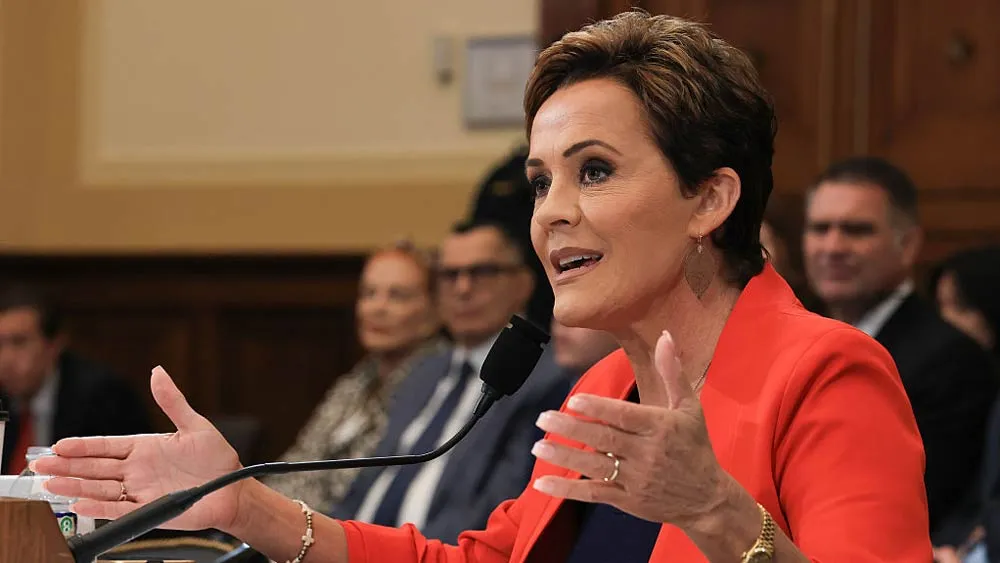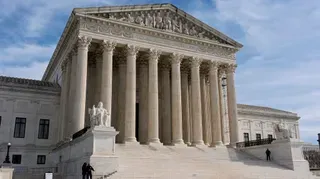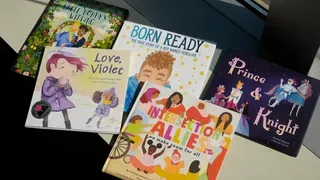May 28, 2010
In Africa's Homophobic Landscape, a Few Signs of Hope
Kilian Melloy READ TIME: 4 MIN.
At first it might seem as though the prospects for GLBTs living in African nations are grim. A Malawi same-sex couple has been sentenced to a 14-year prison term for simply throwing a party to celebrate what they viewed as their engagement--not that Malawi's laws would have allowed them to marry in any case.
In Zambia, a nation just West of Malawi, civil and religious leaders have ramped up anti-gay rhetoric, reported News24.com on May 21, with the result that American-based international watchdog Human Rights Watch has sent a letter to that nation's leadership deploring the likely result that gays and other MSMs (men who have sex with men) will go underground and HIV rates will skyrocket as MSMs avoid testing and medical care out of fear of persecution.
Earlier this year, religious leaders' anti-gay rhetoric drove a violent mob attack on the Kenya Medical Research Institute (KMRI), a medical facility in Kenya. The Feb. 12 attack on KMRI, located in the coastal town Mtwapa, sent shockwaves across the country and sparked riots and anti-gay violence by vigilantes in other towns, according to a Feb. 17 posting at the website for the Human Rights Watch (HRW). Meantime, according to the HRW's Dipika Nath, "The government is sitting silent while mobs try to kill human rights defenders and assault people they suspect are gay."
Similar religiously driven anti-gay persecution has wracked Nigeria, a large nation in which both Christian and Muslim anti-gay influences set the stage for violence targeting GLBTs. Changing Attitude Nigeria Director Davis Mac-Iyalla told EDGE in 2008 that, "The real threat of death or serious injury is not from legal actions by the state, but from mob violence and unofficial actions by the police who are a law unto themselves."
In Uganda, following a visit from several anti-gay American evangelists, a little-known politician named David Bahati rocketed to global fame when he proposed a bill that would inflict the death penalty on gays. Bahati later refused to take the bill off the table even when asked to do so by his government in the face of international criticism.
Workers at a GLBT advocacy group in Zimbabwe were held in jail for six days, during which time they were allegedly tortured, following a police raid on their office. They were accused of possessing gay pornography, as well as a document that criticized the nation's notoriously anti-gay president, Robert Mugabe, who has sworn that the nation's new constitution will not provide legal protections to gays.
Social Situation Still Hard in 'Gay-Friendly' South Africa
South Africa offers gays equal rights and protections, even extending marriage equality to its gay citizens, but the social situation there is still hard: lesbians in that country have reportedly been raped by gangs of men--sometimes including their own male relatives--in purported attempts to "cure" them.
And in Morocco, a performance by Elton John prompted an outcry, with the openly gay British performer being scorned by one political leader as "promoting homosexuality."
But there are glimmers of hope. The harsh sentence handed down to Steven Monjeza and Tiwonge Chimbalanga in Malawi has drawn a spotlight to the plight of GLBTs in Africa, personalizing the cost of widespread, often faith-based animus against gays in a way the other stories have not.
Even the leaders of other African nations have spoken out against the sentence, which imposed the maximum term--fourteen years--on the men, who are now being kept in separate facilities. The president of South Africa, Jacob Zuma, denounced the sentence, a May 27 Reuters story said.
Former U.N. Secretary General Kofi Annan, who remains a prominent person in Ghana, appeared in Johannesburg recently as part of the Africa Progress Panel. During that appearance, Annan condemned the sentence, calling it "very regressive," British newspaper The Guardian reported on May 25.
And although many Anglican bishops in South Africa are anti-gay--and have sought to align North American Episcopalian parishes unhappy with the elevation of gay clergy to the position of bishops in their church with their own branch of the church--the Synod of Bishops of the Anglican Church of Southern Africa denounced the sentence imposed on Monjeza and Chimbalanga, issuing a statement that read, "We urge {the South African government and President Zuma] to press for the swift release of these two, who have committed no act of violence or harm against anyone; for the quashing of the sentence against them; and for the repeal of this repressive legislation," reported the Namibian on May 28. "We see the sentence that has been handed down to these two individuals as a gross violation of human rights and we therefore strongly condemn such sentences and behavior towards other human beings," the Synod added in its statement.
"More generally, we wish to reiterate our deep concern at the violent language used against the gay community across Sub-Saharan Africa, and at the increased legal action being taken against gay individuals, communities and organizations," the statement added. "Even in South Africa we are aware of instances of violence against the gay and lesbian community. We therefore appeal to law-makers everywhere to defend the rights of these minorities.
"As Bishops we believe that it is immoral to permit or support oppression of, or discrimination against, people on the grounds of their sexual orientation, and contrary to the teaching of the gospel; particularly Jesus' command that we should love one another as he has loved us, without distinction (John 13:34-35)," the statement continued. "We commit ourselves to teach, preach and act against any laws that undermine human dignity and oppress any and all minorities, even as we call for Christians and all people to uphold the standards of holiness of life."
Kilian Melloy serves as EDGE Media Network's Associate Arts Editor and Staff Contributor. His professional memberships include the National Lesbian & Gay Journalists Association, the Boston Online Film Critics Association, The Gay and Lesbian Entertainment Critics Association, and the Boston Theater Critics Association's Elliot Norton Awards Committee.







